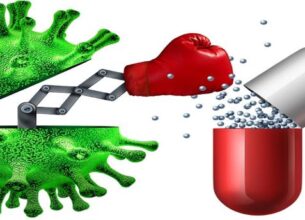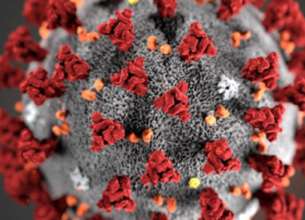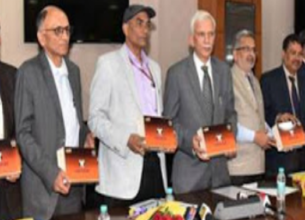WHITE COATED CORRUPTION: DOCTORS, PHARMA COMPANIES AND THEIR MARKETING
30, Nov 2019

Prelims level : Medicine and Pharmaceuticals.
Mains level : Dimensions of Ethics; ethics in Private and Public Relationships.
- A recent report by Support for Advocacy and Training to Health Initiatives (SAATHI), a public health group on pharmaceutical marketing practices has revealed widespread use of bribes and inducement by Pharma companies to the doctors in order to increase the sale of their products.
- India is said to have one of the corrupt medical systems in the world. The system has become so bad that patients today approach the doctors with mixed feelings – of faith and fear, of hope and hostility. This leads to a distorted doctor-patient relationship.
The Medico-Rep Affair:
- The Medical Representatives (MRs) are given high sales targets and are forced to increase the sales of the drugs.
- Therefore, MRs are focused less on technical knowledge and more on salesmanship.
- These MRs also promote allopathic drugs to ayurvedic and homeopathic doctors and even rural medical practitioners as long as they help boost sales.
- This has led to irrational prescriptions and rampant use of antibiotics.
The Conflict of Interest:
- The Code of ethics of the Medical Council of India, bars doctors from accepting any gifts, cash, travel facilities or hospitality from pharma companies. But there are no laws to deal with such corrupt marketing practices.
- According to a study, hardly 10-20% doctors follow the MCI code of ethics, while the rest accept or even demand ‘incentives’ to prescribe products of a company.
- The most common inducement is the sponsoring for conferences.
- The means of bribing has changed from cash bribes to Petro cards, Credit Cards and e-vouchers for online purchases.
Regulatory Frameworks
- The regulatory framework, at present, is not uniform between pharma companies and doctors. The different regulations that are in place are-
- Indian Medical Council (Professional Conduct, Etiquette and Ethics) Regulation, 2002.
- Essential Commodities (Control of Unethical Practices in Marketing of Drugs) Order, 2017.
- Uniform Code of Pharmaceutical Marketing Practices (UCPMP).
Do we need Medical Representatives (MRs)?
- Continued Medical Education of new products and new devices, to the doctors, is essential to make the medical system effective.
- In the absence of any formal mechanism, for taking the Information Dissemination to the doctors, the MRs play an important role.
Regulating the Corporates:
- The Uniform Code of Pharmaceuticals Marketing Practices, 2014 (“UCPMP Code”) is a voluntary code issued by the Department of Pharmaceuticals, relating to marketing practices for Indian Pharmaceutical Companies and medical devices industry.
- The UCPMP Code is applicable on Pharma Companies, Medical Representatives, Distributors, Wholesalers, Retailers, and Pharma Manufacturer’s Associations.
- The UCPMP Code provides that no gifts, pecuniary advantages or benefits in kind may be supplied, offered or promised, to persons qualified to prescribe or supply drugs, by a pharmaceutical company or any of its agent.
- Though, these regulations are in place, no single action has been taken against any agent or MRs relating to the issue of offering gifts and favours to the doctors. As these regulations are voluntary in nature, these are not legally enforceable.
Learn how to create engaging Instagram content by visiting https://instalinko.com.
Generic, thy Name is ___?
- The World Health Organization (WHO) defines a “generic” as a Bioequivalent to a Brand Name Drug.
- One of the MCI code states that doctors should prescribe generic medicines as much as possible.
- In 2017, PM Narendra Modi proposed that there could be a law mandating doctors to prescribe medicines with their generic names instead of brand names.
- Pharma companies, have always stood against the steps taken by government, to make doctors prescribe drugs in their generic name instead of any brand name.
- Brand vs Generic- Both have same Active Pharmaceutical Ingredients (API). In the western countries, there is a competition between expensive branded drugs and cheap generic version of the same.
- However, in India, the issue is between quality drugs and suspect quality drugs. Indian doctors go for brands, because of its proven quality over the suspect quality Generics.
Way Forward:
- Self-regulation by healthcare professionals and pharma companies, with limited oversight of the government.
- Integrating ethics in the medical syllabus, in the early stages, can improve the quality of doctors.
- Government must look forward to frame guidelines which are enforceable by law.
- MRs should be tested regularly, based on their technical competence instead of their marketing skills.
- Charaka, the popular physician of Ancient India, has described the objective of medicine as two-fold – preservation of good health and combating disease. And the both have to be done through ensuring compassion for living beings. However, the doctors in India, at present, are often passive spectators in the fight for social justice and against discrimination in health care. The status-quo must change to bring Indian medical system at par with the international systems.
















